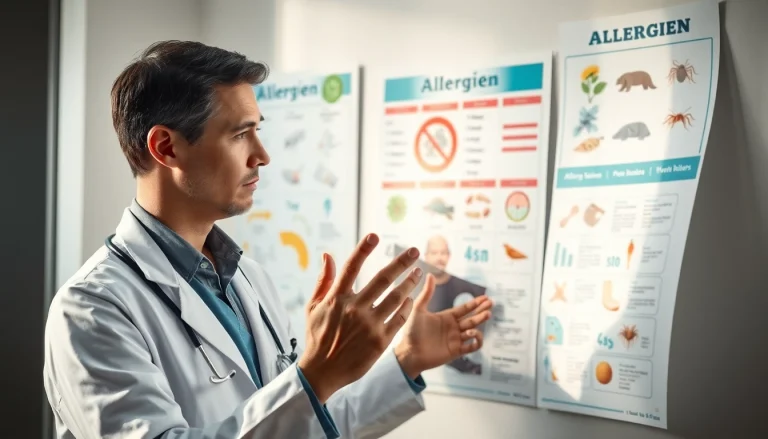
Understanding Depression: Causes and Symptoms
What is Depression?
Depression is more than just feeling sad; it is a complex mental health disorder that affects an individual’s thoughts, feelings, and behavior. Characterized by a persistent feeling of hopelessness and a lack of interest in activities once enjoyed, depression can significantly impact daily functioning. It can manifest in different forms and varies in intensity, ranging from mild to severe. Understanding what depression is can be the first step in dealing with depression.
Common Symptoms of Depression
Identifying the symptoms of depression can be crucial for proper diagnosis and treatment. While symptoms can vary widely among individuals, some common signs include:
- Persistent sadness or low mood
- Loss of interest or pleasure in activities
- Feelings of guilt, worthlessness, or helplessness
- Changes in appetite or weight
- Sleep disturbances (insomnia or hypersomnia)
- Fatigue or loss of energy
- Difficulties in concentrating or making decisions
- Thoughts of death or suicide
If you or someone you know is experiencing several of these symptoms, it’s essential to seek professional help.
Different Types of Depression
Depression can take various forms, and understanding the different types can assist in seeking appropriate treatment. The most common types of depression include:
- Major Depressive Disorder: A severe condition characterized by intense symptoms that interfere with daily life.
- Persistent Depressive Disorder: Chronic depression lasting for two years or more, often less severe but long-lasting.
- Bipolar Disorder: Involves episodes of both depression and mania, significantly affecting mood swings.
- Seasonal Affective Disorder (SAD): A type of depression that occurs at certain times of the year, often during winter months.
- Postpartum Depression: A form of depression that occurs after childbirth, affecting new mothers.
Understanding these variations can aid in recognizing symptoms and accessing the most suitable treatment.
Impact of Depression on Daily Life
How Depression Affects Relationships
Depression can have a profound effect on personal and professional relationships. Individuals may withdraw from friends and family, leading to isolation. Communication can suffer, and misunderstandings may arise, resulting in frustration and concern among loved ones. The inability to engage in social activities can further exacerbate feelings of loneliness, creating a feedback loop that deepens the depressive symptoms.
Work and Productivity Challenges
In the workplace, depression can manifest as reduced productivity, increased absenteeism, and a lack of motivation. Individuals may struggle to meet deadlines, experience difficulties concentrating, or become easily overwhelmed by tasks that once seemed manageable. This can lead to issues with performance evaluations and workplace relationships.
Everyday Life Changes with Depression
Depression can alter everyday routines, including personal hygiene and dietary habits. Individuals may neglect self-care, lose interest in physical activities, and experience significant changes in appetite or sleep patterns. This can further detract from overall well-being, creating a cycle of neglect and despair.
Strategies for Dealing with Depression
Professional Help: Therapy and Counseling
Seeking professional help is one of the most effective strategies for managing depression. Therapy can provide a safe space to explore feelings and develop coping mechanisms. Different types of therapies, such as cognitive-behavioral therapy (CBT) and interpersonal therapy (IPT), can be beneficial. A mental health professional can tailor the treatment to the individual’s needs and offer support throughout the recovery process.
Self-Help Techniques and Activities
Incorporating self-help techniques can complement professional treatment. Some effective self-care practices include:
- Exercise: Regular physical activity releases endorphins that boost mood and reduce symptoms of depression.
- Mindfulness and Meditation: Practices such as yoga and meditation can help increase self-awareness and promote a sense of calm.
- Healthy Diet: Eating a balanced diet rich in nutrients can support overall mental and physical health.
- Sleep Hygiene: Prioritizing good sleep habits can improve mood and energy levels.
- Creative Outlets: Engaging in creative activities like writing, painting, or playing music can be therapeutic and provide an emotional release.
Medication Options: When to Consider
For some individuals, medication may be an essential part of treatment for depression. Antidepressants can help balance chemicals in the brain and alleviate symptoms. It is crucial to consult a healthcare provider to assess whether medication is appropriate and to discuss potential side effects and drug interactions. Medications may take several weeks to show effects, and finding the right type and dosage can often require patience and collaboration with a healthcare provider.
Building a Support System
Family and Friends: How to Get Support
Sharing experiences with family and friends can provide emotional support necessary for recovery. Communicating openly about feelings can foster understanding and empathy. It can also be helpful for loved ones to learn about depression, so they can offer practical support and guidance. Establishing a supportive environment can make a significant difference.
Online and Community Resources
Many online platforms and local organizations provide resources for individuals dealing with depression. These may include websites offering information and self-help tools, local support groups, and community mental health centers. Engaging with these resources can provide additional support and information, making it easier to find effective coping strategies.
Peer Support Groups for Dealing with Depression
Joining a peer support group can connect individuals experiencing similar challenges. Group settings foster shared understanding and encouragement among participants. Members can share their experiences, coping strategies, and insights into managing depression together. Many support groups are available in person and online, offering flexible options to accommodate different needs.
When to Seek Immediate Help
Signs That Indicate Urgent Care is Needed
While coping strategies can be beneficial, it’s crucial to recognize when immediate help is required. Signs that may indicate a need for urgent care include:
- Thoughts of self-harm or suicide
- Disconnection from reality (delusions or hallucinations)
- Engaging in risky behavior
- Inability to care for oneself or fulfill responsibilities
If you or someone you know is displaying these signs, it’s essential to seek emergency help immediately.
Emergency Resources and Hotlines
In times of crisis, having access to emergency resources can be a literal lifesaver. Many organizations operate 24/7 hotlines that provide support and guidance. These hotlines can connect individuals with trained professionals who can offer immediate assistance and facilitate further interventions as necessary.
Planning for Crisis Prevention
Implementing a crisis prevention plan can be a proactive step in managing depression. This plan may include identifying early warning signs, establishing coping strategies, and creating a list of emergency contacts (friends, family, mental health professionals). Regularly reviewing and updating this plan can maintain its effectiveness and provide reassurance during challenging times.






